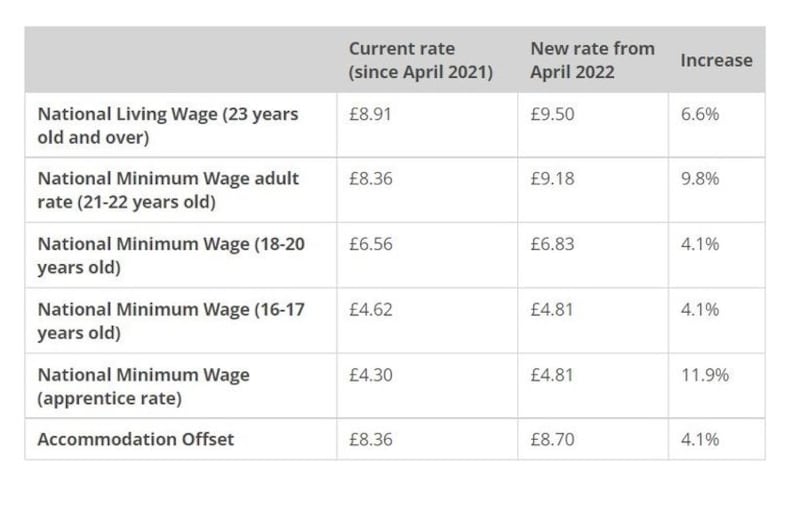WORKERS paid a Real Living Wage by their employer will see their hourly rate rise by 40p to £9.90 per hour.
The voluntary rate, set by The Living Wage Foundation, is higher than the statutory National Living Wage of £8.91 an hour for adults (over the age of 23), which will rise to £9.50 in April.
Almost 9,000 employers across the UK now pay the wage.
It comes as a new report from The Living Wage Foundation revealed that 236,000, or 21.3 per cent of workers in Northern Ireland were being paid below the Living Wage in April 2021.
While the rate was the worst of the 12 UK regions analysed in the report, it marked a significant improvement on the 2020 rate of 26.2 per cent.
The foundation said Northern Ireland has consistently had the highest proportion of employee jobs paid below the Living Wage since it began collecting the data in 2012.
April 2021 is also the first time the figure in Northern Ireland has fallen below its April 2012 rate of 24.4 per cent (when the figure was first measured).
The study indicated that 136,000 women (23.8 per cent) in the north are being paid below the Living Wage, compared to 100,000 men (18.6 per cent).

Almost half (46.9 per cent) of male part-time workers were being paid below the Living Wage in April 2021 compared to 35.9 per cent of part-time female workers, both well above the UK average.
The rate among full-time workers was much lower at 15.1 per cent for women and 13.5 per cent for men.
Katherine Chapman, Living Wage Foundation Director, said: "With living costs rising so rapidly, today's new Living Wage rates will provide hundreds of thousands of workers and their families with greater security and stability.
"For the past 20 years, the Living Wage movement has shaped the debate on low pay, showing what is possible when responsible employers step up and provide a wage that delivers dignity.
"Despite this, there are still millions trapped in working poverty, struggling to keep their heads above water and these are people working in jobs that kept society going during the pandemic like social care workers and cleaners."







